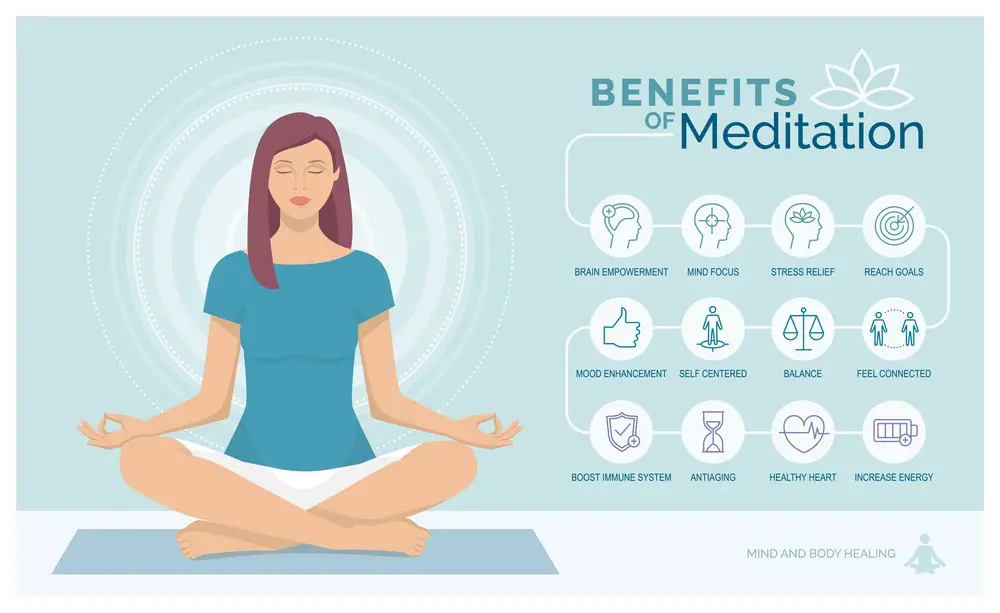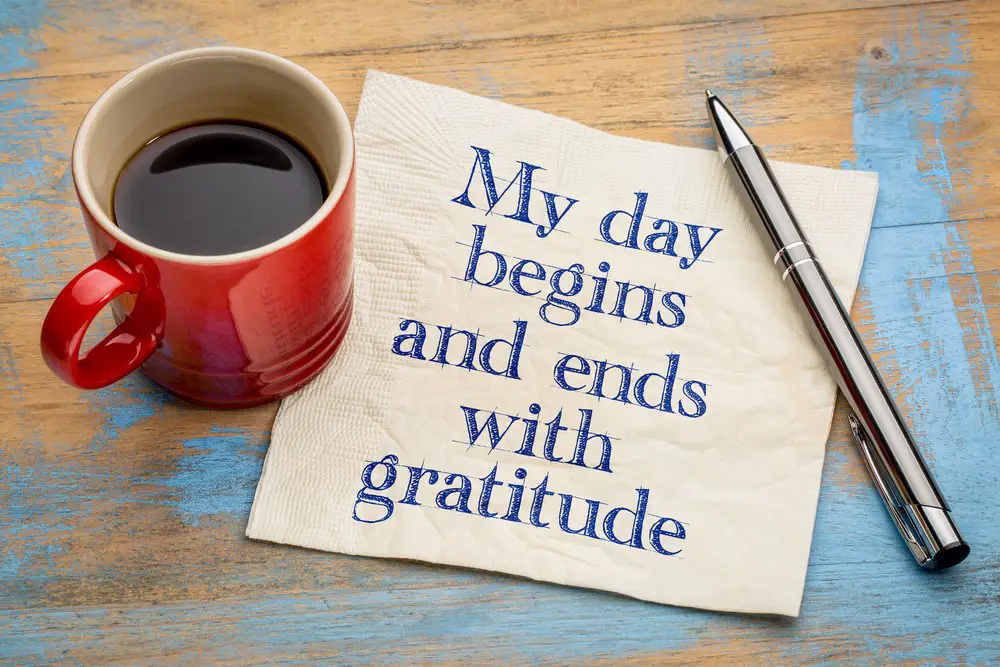As a BetterHelp affiliate, we receive compensation from BetterHelp if you purchase products or services through the links provided
To help you incorporate effective stress relievers into your daily routine, we asked ten professionals, including a psychology expert and a corporate speaker, to share their proven methods. Discover the top ten stress-relieving techniques these experts swear by, from meditation to mindful doodling.
- Meditation
- Daily Gratitude
- Nature Walks
- Cleaning
- Aquarium Maintenance
- Brief Breaks
- Cold Showers
- Deep-Breathing
- Journaling
- Mindful Doodling

Meditation
Meditation, closely tied to my expertise in mindfulness, is my go-to stress reliever. Our minds frequently become cluttered with incessant thoughts, heightening our stress and anxiety.
For me, meditation serves as a mental decluttering tool. It’s more than just sitting in silence; it’s about training my mind to remain in the present. For example, when my client’s concerns weigh me down during intense coaching sessions, a brief five-minute meditation helps me center and ground myself. I focus on my breath and observe my thoughts without judgment, and the mental chatter diminishes over time.
This practice alleviates immediate stress, improves my mental clarity, and creates a more balanced emotional state.
Bayu Prihandito, Psychology Expert, Life Coach, Founder, Life Architekture

Daily Gratitude
I spend five minutes in the morning thinking about things I’m grateful for and another 20 minutes on gratitude in the evening. This helps reduce stress and anxiety and trains my brain to think more positively during sleep. This practice will help you during any stressful time, and you will be more pleasant to be around!
Jay Toy, General Manager, 88stacks

Nature Walks
As an entrepreneur, one practice that works for me is taking regular walks in nature. It may sound simple, but the power of fresh air and greenery can work wonders for the mind and body.
A 20-minute walk outside helps clear my head, reduces anxiety, and provides a much-needed break from my daily hustle. Plus, it’s easily incorporated into my daily routine—I can walk during my lunch breaks or after work.
Johannes Larsson, Founder and CEO, JohannesLarsson.com
Cleaning
I clean my home to cleanse my mind. Most people have a negative outlook toward chores—they’re necessary evils that detract from having fun. But I’ve reframed my thinking about chores (especially cleaning) and now consider it a great way to relieve stress.
When I’m overwhelmed, I pick a room or fixture in my house and start deep cleaning. As I remove dirt, dust, and grime, I envision a weight slowly removed from my mind and body. I’m ridding myself of negative feelings and thoughts, tossing them out with the trash and cleaning rags.
Connecting physical acts to mental images helps to restore my mind-body connection and allows me to feel a sense of accomplishment when I’m done.
Alli Hill, Founder and Director, Fleurish Freelance
Aquarium Maintenance
A planted aquarium is a great way to relax and reduce stress. Watching fish as they swim around or observing the calming colors of the plants can be incredibly soothing. Setting up an aquarium can also be a fun, rewarding activity when it’s done.
The beauty of an aquarium continues long after it has been set up, with very little maintenance needed. An aquarium is an easy and enjoyable way to incorporate relaxation into your daily routine.
Keith Sant, Head of Property Acquisitions, Texas Cash House Buyer
Brief Breaks
A go-to stress reliever for me is taking brief breaks during the day. Whenever I feel the weight of tasks piling up, I step away for a quick walk or some light stretching. This simple act helps me rejuvenate and refocus.
For those wanting to try this, setting an hourly reminder can be a helpful way to ensure you give yourself these essential moments of pause. It’s an easy yet effective way to keep stress at bay.
Khurram Mir, Founder and Chief Marketing Officer, Kualitatem Inc.
Cold Showers
Without a doubt, my daily three-minute cold shower is a game-changer. I know people hate the cold, but hear me out! You can even do cold water at the end for ten or twenty seconds and see incredible results.
The cold water is a fantastic resource for dopamine, serotonin, and endorphins. Cold water exposure also builds your tolerance of stress. You don’t like it, but you do it anyway. Then, you start deep breathing through it, and then your body realizes the reward.
You feel the hormones rushing through your body when you leave the shower. Boom, you’ve gone from feeling uncomfortable and stressed to empowered and relaxed, all within a few minutes!
Let’s start small with a few seconds; every day, add another few seconds. Within a month, you’ll be able to withstand a solid minute of cold water and start the day feeling refreshed, excited, and able to handle the stress of life!
James Barnes, Corporate Speaker, James Bee Media, LLC
Deep-Breathing
Deep-breathing exercises can be easily incorporated into a daily routine and are proven to activate the body’s relaxation response. You can calm your mind and relax your body by taking slow, deep breaths.
For instance, you can take a break and find a quiet space. Close your eyes and take a deep breath in through your nose, filling your lungs, and then exhale slowly through your mouth. Repeat this process for a few minutes.
We can do this exercise during quick breaks throughout the day, such as before a meeting or when feeling overwhelmed. Focusing on your breath redirects your attention away from stress and promotes a sense of calm.
Yoana Wong, Co-Founder, Secret Florists

Journaling
Journaling is a proven stress reliever that can easily be incorporated into a daily routine. Writing thoughts, feelings, and experiences in a journal creates a private outlet for self-expression and reflection.
This process allows you to release pent-up emotions, gain clarity, and better understand yourself. You can set aside a few minutes each day to write in your journal, choosing a time that suits you best.
For example, you may prefer journaling in the morning to start the day with a clear mind. By consistently practicing journaling, you’ll experience its therapeutic benefits and build a healthy stress-relieving habit.
Roy Lau, Co-Founder, 28 Mortgage
Mindful Doodling
One proven stress reliever that works for me and can be easily incorporated into a daily routine is practicing mindful doodling. Mindful doodling is an example of a stress-relieving technique that involves creating random patterns or drawings while fully focusing on the process.
Dedicating even just five minutes in my day to engage in this activity allows me to detach from any worries or pressures I may be experiencing. The repetitive motion of drawing shapes and lines helps to calm my mind and redirect my thoughts away from stress triggers. It encourages mindful thinking as I become aware of every movement during the doodling process, allowing me to momentarily escape the hectic reality and find solace within my imagination.
This simple yet effective practice enables me to create a space to immerse myself in positive energy, benefiting my mental well-being and creativity.
Steve Dinelli, Founder, MarketerInterview.com
 Recognizing When Professional Help is Needed, Setting Goals, and Tracking Progress
Recognizing When Professional Help is Needed, Setting Goals, and Tracking Progress
When to Seek Professional Help
While the stress-relieving techniques mentioned above can be quite effective, there are times when professional help is needed. Suppose you find that stress affects your quality of life, causing physical symptoms, or disrupts your sleep and relationships. In that case, it’s time to consult a healthcare provider or mental health professional.
Setting Goals for Stress Management
Having clear objectives can make your stress-management journey more focused. Start by identifying what triggers your stress and how it manifests. Then, choose appropriate techniques from our list that specifically address these issues. Your goals range from ‘Sleeping 7 hours a night’ to ‘Engaging in one stress-relieving activity daily.’
Tracking Your Progress
Progress tracking is equally important. Document your stress levels, triggers, and coping mechanisms in a journal or use a stress management app. This helps you monitor your effectiveness over time and make necessary adjustments to your strategy.
Key Takeaways:
- Consult professionals if stress disrupts your life significantly.
- Setting clear goals provides direction in managing stress.
- Regularly tracking your progress allows for adjustments and celebrates small wins.
Incorporating these elements will aid in your stress management and offer a comprehensive approach to mental well-being.
About the Author: Jacob Maslow – From Personal Struggles to Public Support
Hi, I’m Jacob Maslow. Navigating a complex custody battle and mental health challenges has been tough, but I’ve found solace in daily long walks and therapy. This journey led me to become an advocate. I write about coping with narcissistic partners and mental health, aiming to help others in similar situations. I also offer legal advice through my site for those wrestling with uncooperative ex-spouses in court. My motto? Overcoming mental health challenges is possible for everyone.
- Stress Management: What is the Relationship Between Stress and Addiction? - June 28, 2024
- Exploring Techniques to Maintain a Healthy Lifestyle without Drugs - May 28, 2024
- How Acupuncture Helps Treat Chronic Fatigue Syndrome - May 28, 2024
This site contains affiliate links to products. We will receive a commission for purchases made through these links.


 Recognizing When Professional Help is Needed, Setting Goals, and Tracking Progress
Recognizing When Professional Help is Needed, Setting Goals, and Tracking Progress

